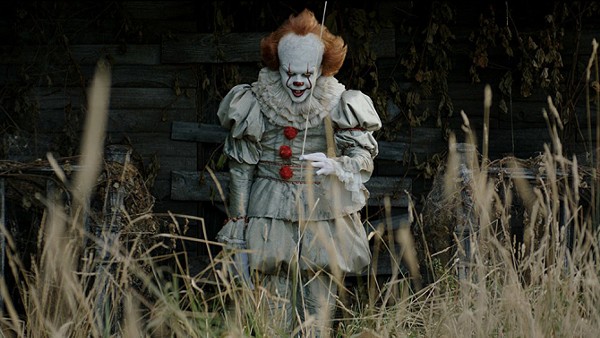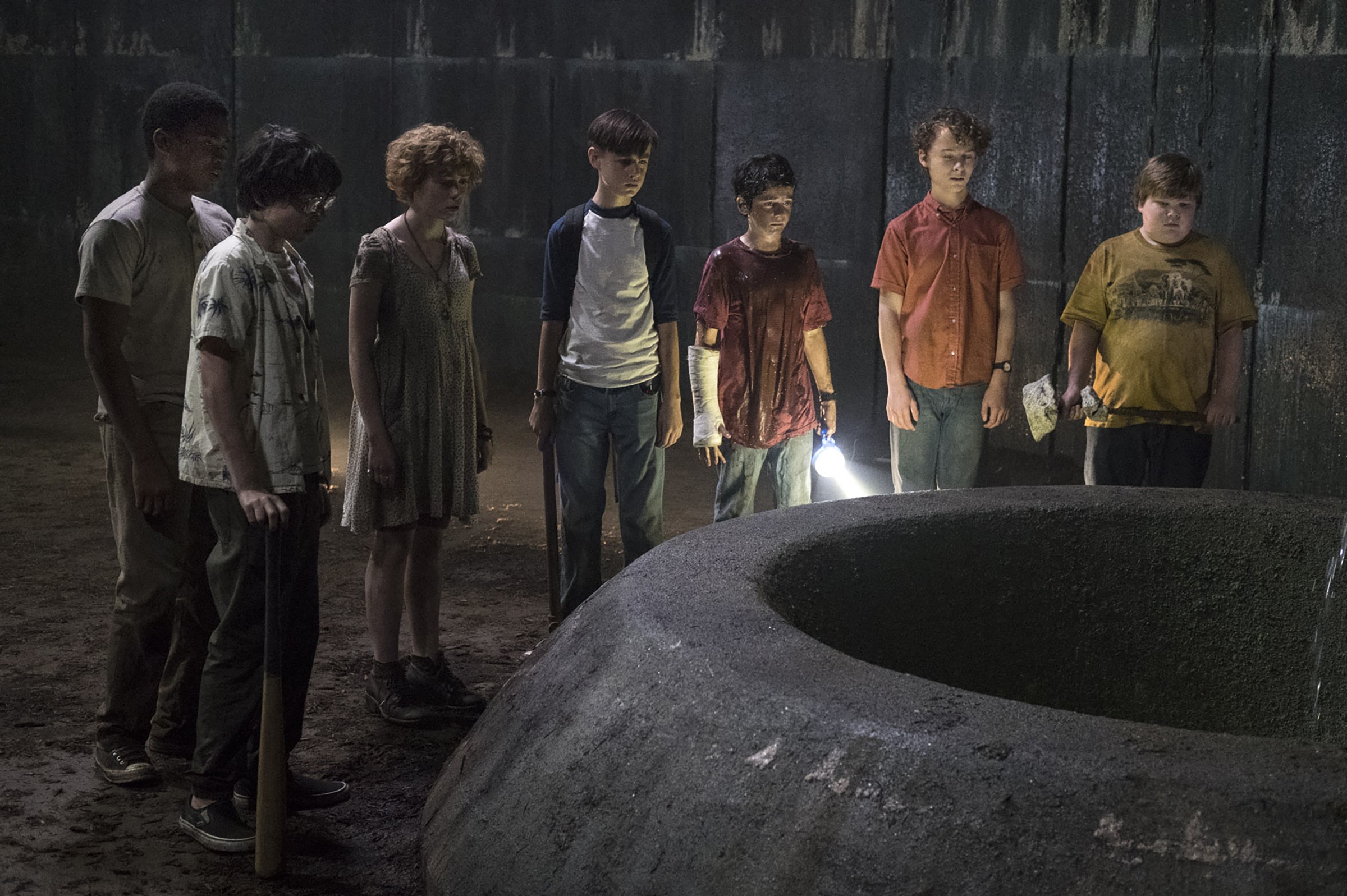It
It, 2017, 1 ¼ stars
It remake swaps smarts for cheap scares
From The Orlando Weekly and The Detroit Metro Times, September 6, 2017
Director Andy Muschietti (Mama) sets the tone for his It remake in the first 10 minutes by brutally and unnecessarily depicting a child’s arm being ripped off and a sheep being shot in the head. If you enjoy that type of crap, hold onto your balloons, because It is one wild ride of silly scares. But if you prefer genuine fright and a commentary on lost – and suppressed – childhood, you’re in for a long, stupid, repetitive and unpleasant experience.
It is, of course, based on the Stephen King 1986 bestseller, which was famously adapted into a 1990 two-part ABC miniseries. The story focuses on seven children in Derry, Maine, who are all visited by a demonic presence they call simply “It.” Though It often takes the form of the thing each child most fears, its standard incarnation is a creepy clown called Pennywise. The seven children, nicknamed “The Losers,” are able to battle Pennywise because they stick together and believe in each other.
The novel is 1,138 pages and features two interwoven stories. The first, set in 1957-1958, depicts the kids’ initial battle with Pennywise, while the second, set 27 years later, revisits the children as adults after Pennywise resurfaces to terrorize the town’s youngsters yet again. As adults, the seven friends must confront a childhood nightmare that had faded into memory and, by doing so, discover the meaning of their lives.
Both the miniseries and new film (written by Chase Palmer, Cary Fukunaga and Gary Dauberman) take huge liberties with the novel, and that’s acceptable considering the length of the book and the fact that cinema should not be a prisoner of literature. However, both versions fail to capture the emotional power King was attempting in the book. Interestingly, the new film succeeds where the miniseries failed, and vice versa. For instance, Muschietti’s movie is technically more proficient and cinematic than the 1990 version. It’s shot better, contains better art direction and is packed with more jump-scares and slick special effects than the old TV version, which suffered from amateur production values. But by interweaving the two stories (childhood and adulthood) as the novel did, the miniseries more successfully captured the themes of lost childhood. The new film, in contrast, focuses on just the story of the kids (this time in 1988-1989), presumably leaving the adults’ tale for the sequel. It’s a strategy designed to boost box office, not present a meaningful, nuanced tale.
 As Pennywise, Bill Skarsgård is just OK and on par with Tim Curry’s performance in the miniseries. If you fear clowns, you’ll probably fear him, although, thanks to his poor enunciation, your main emotion might be confusion instead of fear.
As Pennywise, Bill Skarsgård is just OK and on par with Tim Curry’s performance in the miniseries. If you fear clowns, you’ll probably fear him, although, thanks to his poor enunciation, your main emotion might be confusion instead of fear.
While the actors portraying the three bullies who terrorize the “Losers” are ridiculously over the top (probably thanks to poor direction), all seven principal child actors are competent, as they were in the miniseries. Yet the new film isn’t as sharp in its characterizations. Indeed, the miniseries, for all its flaws, was better at methodically presenting each child (and their seven adult counterparts) so you were able to grasp their personalities. The film instead throws multiple characters at you at once and fails to establish the uniqueness of each. Still, Jaeden Lieberher as Billy (the stuttering boy whose younger brother is dragged into the sewer by Pennywise) and Sophia Lillis as Beverly (the only girl in the group) are excellent. Look for big things from her in the future.
The film’s greatest failing is one of tone. It wants to be horror, comedy, comedy-horror and coming-of-age dramedy in the vein of Stand by Me, but it never successfully becomes any of those. Instead of trying to juggle genres, It should have striven for smarts on the scale of Something Wicked This Way Comes. But to do that, it would have had to drop the endless, inane musical interjections and overscoring, and its obsession with punctuating almost every moment of potential drama with spoken ejaculations such as “What the fuck is that?” (The character uttering the most obscenities is rightfully nicknamed “Trashmouth,” but the endless parade of fucks and snarky remarks is numbingly dumb. Ah, out of the mouths of babes.)
“We all float down here,” Pennywise tells the children to coax them into his watery underworld. That might be true, but the movie itself is mostly bereft of buoyancy. It sinks.
© 2017 Euclid Media / MeierMovies, LLC
